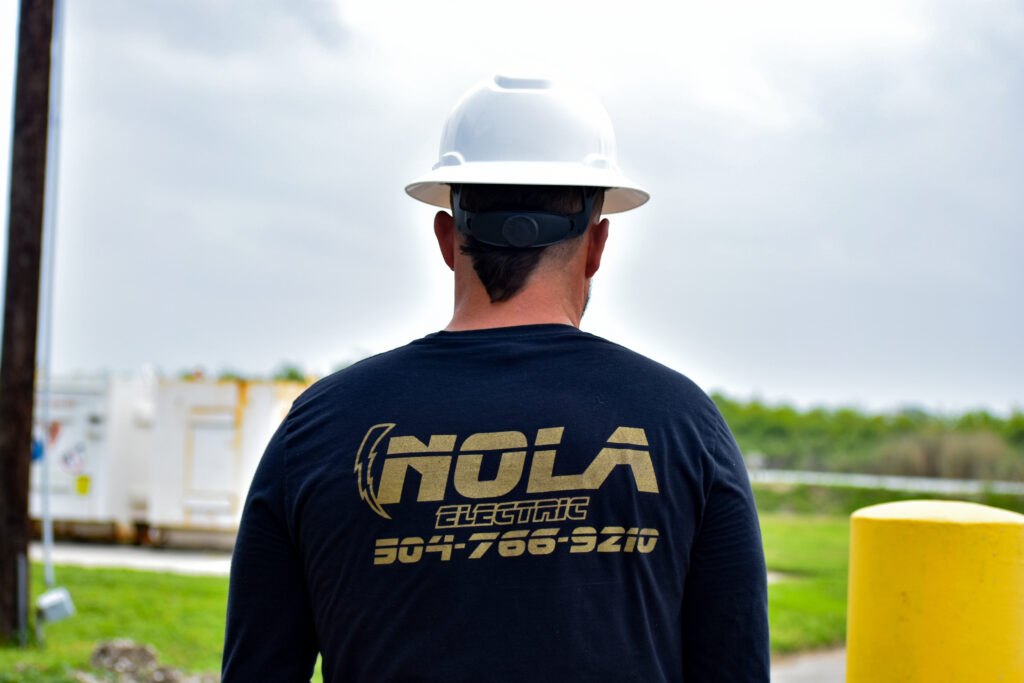Extension cords are a convenient way to bring power where you need it whether you’re setting up holiday decorations, plugging in tools for a project, or simply trying to reach an outlet that’s just a little too far away. But while they’re helpful, they can also pose serious safety risks if used incorrectly. Understanding extension cord safety is key to preventing electrical hazards and protecting your home.
Let’s break down how to use extension cords the right way and why proper use is so important especially when you’re relying on them as temporary power solutions.
Why Extension Cord Safety Matters
Extension cords aren’t meant to be a permanent fix. They’re designed for short-term use when you need power in a spot that doesn’t have a nearby outlet. When used carelessly or over long periods, they can overheat, spark, or even cause electrical fires.
Many household fires each year are traced back to improper use of extension cords. That’s why learning a few basic safety tips can make a big difference when it comes to electrical hazard prevention in your home.
Choose the Right Extension Cord for the Job
Not all extension cords are the same. Some are made for light-duty use like powering a lamp or charging a phone while others are built for heavy-duty tasks like running power tools or outdoor equipment.
When shopping for an extension cord, always check the label. Look for the power rating (amps or watts), length, and whether it’s rated for indoor or outdoor use. Using an indoor cord outside, for example, can be dangerous, especially if it gets wet or exposed to heat.
Also, make sure the cord is certified by a recognized safety testing organization, like UL (Underwriters Laboratories). This ensures it meets national safety standards.
Never Overload the Cord
One of the most common mistakes people make is plugging too many devices into one cord or using a cord that’s too light for the job. Overloading a cord causes it to overheat, which can melt the insulation, damage the cord, and even start a fire.
If you’re using an extension cord for several devices, add up the total power draw (in watts or amps) and make sure it doesn’t exceed the cord’s limit. For anything high-powered like space heaters, microwaves, or power tools use a cord rated for heavy-duty use and only plug in one item at a time.
Use Extension Cords as Temporary Power Solutions Only
It’s easy to fall into the habit of using extension cords as a long-term fix when you’re short on outlets. But they’re not designed to replace permanent wiring. Running cords under rugs, through doorways, or behind furniture can trap heat and wear down the insulation, creating hidden hazards.
If you find yourself relying on extension cords regularly, it may be time to add more outlets to your home. A licensed electrician can help you create a safer and more efficient setup that fits your needs without the risk.
Inspect Cords Regularly
Before each use, check your cords for damage. Look for cracks, fraying, exposed wires, or bent prongs. Damaged cords should be replaced immediately, never try to patch them with tape or other makeshift fixes. Even small damage can lead to dangerous arcing or overheating.
It’s also important to unplug cords by the plug itself, not by tugging on the cord. Pulling from the cord can damage the internal wiring and loosen the connection, increasing the risk of shock or fire.
Keep Cords Away from Water and Heat
Water and electricity are a dangerous mix. Always keep cords dry and away from sinks, tubs, or outdoor puddles. If you’re using a cord outside, make sure it’s specifically rated for outdoor use and is plugged into a GFCI-protected outlet (ground fault circuit interrupter) to prevent shock.
Avoid placing cords near heaters, radiators, or other sources of heat. Excess heat can degrade the cord’s insulation and lead to failure over time.
Store Cords Properly
When not in use, coil your cords loosely and store them in a dry, cool place. Avoid wrapping them tightly or kinking them, as this can damage the wires inside. Keeping cords in good shape when they’re not being used extends their life and reduces the chance of future problems.
Final Thoughts
Extension cords are helpful tools, but they must be used with care. Practicing good extension cord safety helps protect your home, your family, and your electrical devices. Remember, cords are for temporary power solutions not long-term fixes. If you find yourself constantly depending on extension cords, it’s time to consider upgrading your electrical system for a more permanent and safe solution.
At NOLA Electrical Services, we can help you assess your current electrical setup and recommend safer, more efficient options that eliminate the need for excessive cords. We’re here to make sure your home is powered safely inside and out.
Contact NOLA Electrical Services
📍 Website: https://nolaelectricalservices.com/
📞 Phone: (504) 766-9210
📧 Email: bp@nolaelectricco.com

